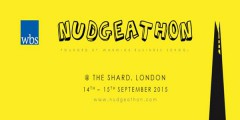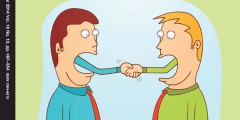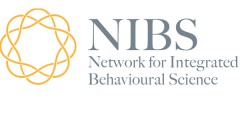How to become more patient – and not eat the cream bun
June 4, 2018
NIBS Co-Investigator Daniel Read, looks at our behaviour when we make decisions on how to act now that will affect our future. He says; “Most of our decisions are intertemporal choices, ranging from the person on a diet agonising over a cream bun to the world’s scientists and leaders convening every year to agonise over …
Eye Movements in Choice
December 2, 2016
They say the eyes are the window to the soul. Here at NIBS we’ve been using the eyes – or at least the way people move their eyes – as a route to understanding what happens when people make decisions. We invited people to the laboratory and recorded their eye movements. We worked on people …
Choosing when to choose (and when not to)
November 14, 2016
Whilst it is crucial to understand what people choose and why, we also want to understand why people come to a decision at a particular time, or after a certain amount of deliberation. When we are trying to understand these questions behavioural scientists tend to run experiments that ask individuals to choose between a number …
The Strangeness of Tradition
January 8, 2016
In case you missed it, it’s well worth listening again to this episode of the Human Zoo (series 7), first broadcast on BBC Radio 4 on 22 December 2015. Hear NIBS Co-Investigator’s Nick Chater (University of Warwick) and Bob Sugden (University of East Anglia) talk about “The Strangeness of Tradition“. Christmas is the time of year …
Warwick Business School – Second Nudgeathon
July 3, 2015
On the 14th and 15th of September 2015, the second Nudgeathon, a behavioural change competition founded by the Warwick Business School, will take place at The Shard in London. Nudgeathon, as its name implies, is a nudging marathon. The main objective of the event is to develop implementable solutions to a given social issue. The idea …
Intertemporal Choice Workshop
March 5, 2015
Forty scholars from across the NIBS network and further afield met in Warwick to generate and discuss ideas related to intertemporal choice. Organised by the Intertemporal Choice mini-network in NIBS, the conference was set up to foster collaboration between researchers from different institutions, and to promote policy-focused research ideas tackling the issues related to choice …
Sudeep Bhatia on Sequential sampling and paradoxes of risky choice
July 3, 2014
Sudeep Bhatia, NIBS Research Fellow at the University of Warwick, recently published ‘Sequential sampling and paradoxes of risky choice‘ in the Psychonomic Bulletin & Review (June 2014). Abstract: The common-ratio, common-consequence, reflection, and event-splitting effects are some of the best-known findings in decision-making research. They represent robust violations of expected utility theory, and …








